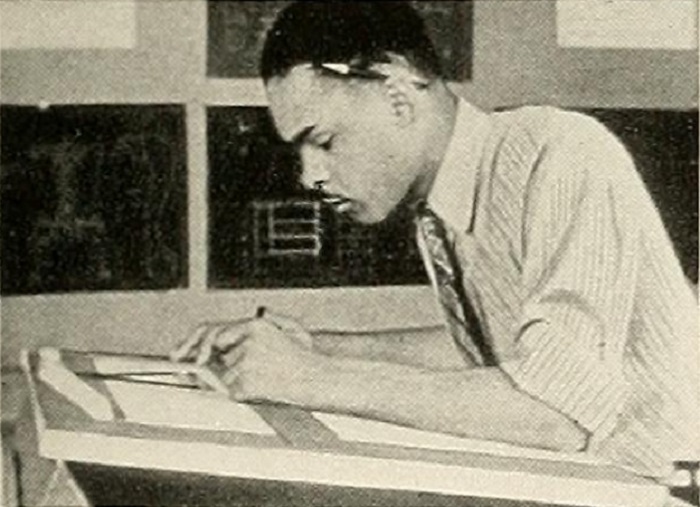
Still from Education For Life in Movie Makers, Dec. 1941, 541.
English
00:33:00
1200 ft
16mm
Kodachrome
Silent
"Education for Life, an attractively filmed record of the daily work of the Hampton Institute, famous school for Negro youth, was produced by the Harmon Foundation and filmed by Mr. and Mrs. Ray Garner. The well planned sequences of this picture tell, in detail, of the high lights of the school's activities. The Garners were faced with the problem of recording, in color, a wide variety of skin tones and with the problem of lighting large areas. These problems were solved with more than the usual skill, and they have turned out an almost perfect filming job. They exercised an excellent choice of camera angles, and the whole film is a thoroughly polished production. The amount of detail in a picture of this type is considerable, but the subject matter is well balanced. The introductory material, a series of ''zoom" shots of maps, is especially well done." Movie Makers, Dec. 1941, 568.
The film's full title is Hampton Institute Presents Its Program of Education for Life.
This film is a part of the Harmon Foundation Collection held by the National Archives.
Record of the film at National Film Preservation Foundation.
Harmon Foundation Collection, National Archives (College Park, U.S.)
"On diversity of education for blacks at Hampton, Va. R.1: Montage of types of studies; statue of founder Gen. Samuel Chapman Armstrong; counselors interview prospective students; physical examinations; aptitude tests; students in work/study programs. R.2: Students in programs from home making to medicine and other scientific fields; art education, including dancing. R.3: Music education; separate residences for men and women; commissary; recreation programs; aviation training; men in civilian and military training programs." Via National Archives.